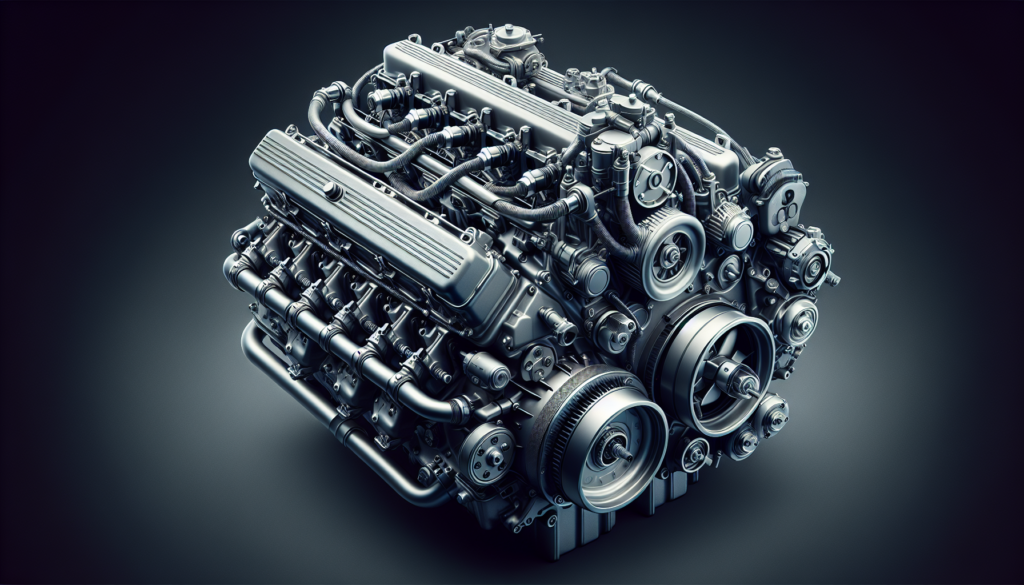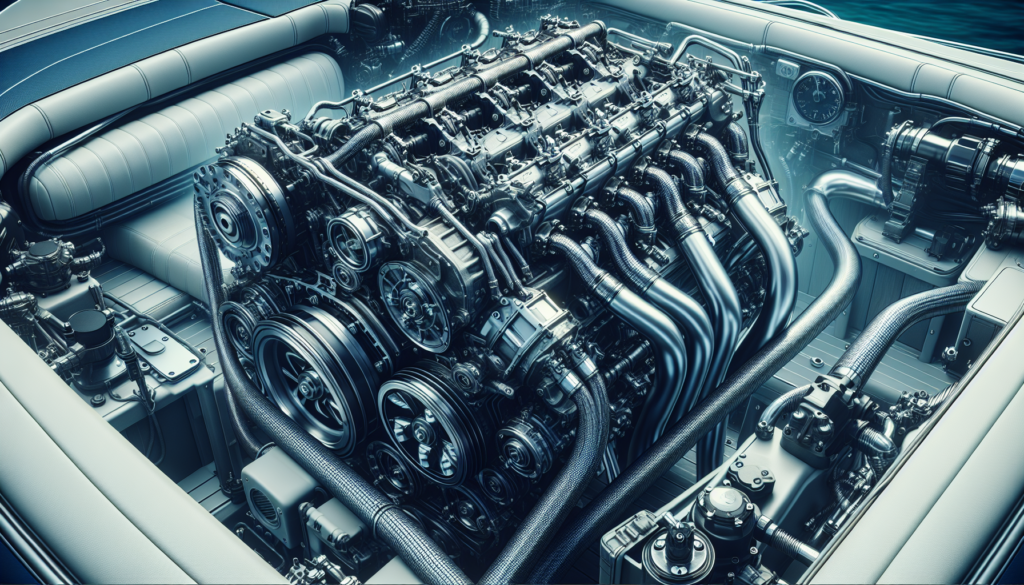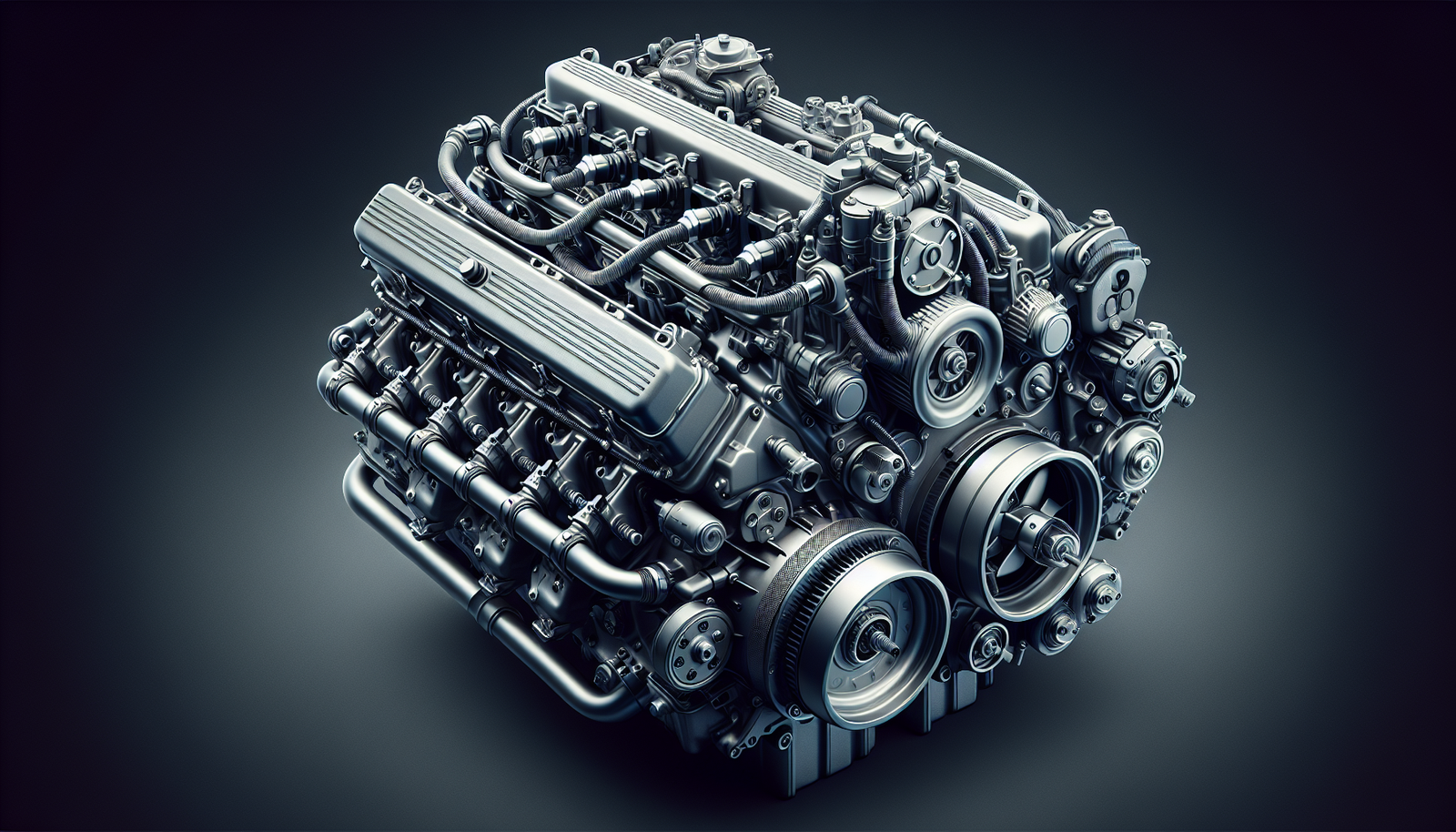You’ve been dreaming about this: Laying back on your beautiful boat, floating effortlessly over calm waters with the sun setting in the distance. But boat ownership isn’t all idyllic moments and Instagram-worthy sunsets. It’s important to grapple with the reality – maintenance issues, particularly those related to the boat’s engine. Taking a closer look at your seafaring vessel’s mechanical heart can intimidate any greenhorn captain. Fear not, for this guide, “Top Ways To Avoid Common Boat Engine Problems“, will sail you through the rough waters, keeping your boat combat-ready and your engine purring with vitality. Just imagine, with a well-maintained boat engine, those sunsets would be even sweeter.

Understanding the Basics of Boat Engine
When it comes to maintaining your boat and preventing common engine problems, it all starts with understanding the basics of your boat engine.
Know your boat engine type
As with cars and other types of vehicles, boat engines come in a variety of types. Some common types include outboard, inboard, sterndrive, and jet engines. These types can also be broken down into two-stroke and four-stroke engines. The type of engine in your boat will have a significant impact on how you maintain and troubleshoot it, so it’s important to know what you’re working with.
Learn basic operation and maintenance procedures
Being familiar with basic operation and maintenance procedures is another crucial aspect of understanding your boat engine. This not only includes knowing how to start and stop the engine and perform routine tasks such as checking oil and coolant levels, but also how to perform basic engine maintenance, such as changing the oil and replacing filters. This knowledge will help you keep your engine running smoothly and catch any potential issues early.
Understand the signs of common engine problems
It’s also important to understand the signs of common engine problems. Some common signs of engine trouble to look out for include unusual noises, smoke, rough idle, and decrease in performance or fuel efficiency. When you notice any of these signs, it’s important to address the issue as soon as possible to prevent more serious damage.
Regular Inspection and Maintenance
Once you understand the basics of your boat engine, the next step is to establish a regular inspection and maintenance routine to keep your engine running smoothly and efficiently.
Carry out daily inspections
Daily inspections are a vital part of good boat engine maintenance. This does not mean you have to give your boat a thorough inspection every day. Instead, you should develop a routine of checking essential elements like the oil and coolant levels, the condition of belts and hoses, etc., every time you prepare to use the boat.
Do seasonal maintenance
Seasonal maintenance is a key aspect of maintaining your boat’s engine. This involves performing tasks such as changing the oil, replacing filters, and winterizing the engine at the end of the boating season.
Identify signs of wear and tear early
Identifying signs of wear and tear early can help you avoid costly repairs and serious engine problems. Regularly checking for and addressing things like corrosion, worn belts and hoses, and leaks can extend the life of your engine and improve its performance.
Hire professional services for thorough maintenance if needed
While there’s a lot you can do yourself to keep your boat’s engine in good shape, there are times when you’ll need to call in a professional. Professionals have the knowledge and equipment to perform more thorough maintenance work and diagnose more complex engine issues.
Proper Engine Lubrication
Proper lubrication is critical for the health of your boat’s engine. This means not only using the right oil but also ensuring that it’s always at the right level.
Select the right engine oil
Not all engine oils are created equal, and using the wrong type of oil can cause damage to your engine over time. Make sure you know what type of oil is recommended for your engine and stick to that.
Check and maintain engine oil levels regularly
Regularly checking and maintaining your engine oil levels is vital for keeping your engine running smoothly. Too little oil can cause overheating, while too much oil can lead to other engine problems.
Understand when to change the engine oil
Knowing when to change your engine oil is also essential. As a general rule, you should change the oil once a season, or every 100 hours of operation, whichever comes first.

Fuel System Care
Fuel system care is another critical aspect of keeping your boat engine in good shape.
Use the right fuel
Much like engine oil, not all fuels are the same. Using the wrong type of fuel can cause poor performance and serious engine damage. Be sure to use the type of fuel recommended by the manufacturer.
Ensure proper storage and handling of fuel
Proper storage and handling of fuel can also help you avoid common boat engine problems. This includes using a stabilizer if you’re not going to use the boat for a while, and making sure that your fuel is always fresh and free of contaminants.
Regularly check and clean the fuel system
Regularly checking and cleaning your fuel system can help you prevent issues such as clogs and leaks. This includes regularly checking and replacing the fuel filter, as well as making sure the fuel lines are in good condition.
Maintaining the Cooling System
The cooling system is another vital part of your boat’s engine, and it’s important to keep it in good working order.
Understand the importance of a cooling system
The cooling system plays a key role in preventing your engine from overheating. Understanding this can help you prioritize maintaining it properly.
Regular inspection for leaks or blockages
Regular inspection for leaks or blockages in your cooling system is a crucial part of keeping your engine running smoothly. a leak can cause your engine to overheat, while a blockage can prevent coolant from circulating properly.
Using appropriate coolant
Just like with oil and fuel, using the right coolant is important for the health of your engine. Make sure to use the type of coolant recommended by the manufacturer and to always keep it at the proper level.
Regular flushing of the cooling system
Regularly flushing your cooling system can help prevent buildup and keep your engine running cool. Ideally, this should be done at least once a season.
Proper Battery Maintenance
The battery is another crucial part of your boat’s engine system. Keeping it in good shape can help you avoid common boat engine problems.
Regular battery inspection
Doing a regular battery inspection can help you catch problems such as corrosion or a weak charge early. You should also make sure that the battery cables are in good condition and that all connections are secure.
Know correct battery storage
Storing your battery properly when it’s not in use is another important part of battery maintenance. You should always store your battery in a cool, dry place and keep it fully charged.
Understand the signs of a weak battery
Understanding the signs of a weak battery can help you avoid problems such as being unable to start your boat. Signs to look out for include slow engine cranking and the battery not holding a charge.
Opt for professional battery services when necessary
Just like with the rest of your boat’s engine, there are times when you’ll need to bring in a professional to handle battery maintenance or repairs. These professionals have the knowledge and equipment to handle more complex battery issues and can help keep your boat running smoothly.
Care for the Boat’s Electrical System
Taking care of your boat’s electrical system can help you avoid many common boat engine problems.
Check for loose or corroded connections and wires
Regularly checking for loose or corroded connections and wires is an essential part of maintaining your boat’s electrical system. Loose connections can lead to poor performance or a complete engine shutdown, while corrosion can cause serious damage over time.
Avoid overloading the electrical system
It’s also important to avoid overloading your boat’s electrical system. Too much load can strain the engine and cause damage to the electrical components.
Regularly check all electrical components for signs of damage or deterioration
Regularly checking all the electrical components for signs of damage or deterioration can also help you prevent engine problems. This includes things like the alternator, starter motor, and any other electrical components your boat may have.
Routine Boat Engine Cleaning
Keeping your boat’s engine clean, both inside and out, can help you prevent engine problems and keep your boat running smoothly.
Ensure regular cleaning inside and outside of the engine
Regular cleaning of your engine can help prevent the buildup of dirt, grime, and other contaminants that can lead to engine problems. This includes both the inside and outside of the engine.
Use recommended cleaning agents and tools
When cleaning your engine, it’s important to use the recommended cleaning agents and tools. This will help ensure that you’re cleaning it effectively without causing any damage.
Avoid moisture build-up
Avoiding moisture build-up in your engine can also help you avoid common engine problems. Water and engine components don’t mix well, so it’s important to keep your engine as dry as possible.
Preparation for Boat Storage
Properly preparing your boat for storage can help you avoid engine problems when you’re ready to use it again.
Proper engine check before storage
Before storing your boat, you should perform a thorough engine check to make sure everything is in good condition. This includes checking the oil and coolant levels, the condition of the belts and hoses, and the condition of the electrical system.
Keep the boat in a dry and ventilated area
Keeping your boat in a dry, ventilated area is ideal for preventing moisture build-up and the associated engine problems. This might not always be possible, but do the best you can.
Cover the boat properly to prevent dust and moisture
Covering your boat properly can also help protect the engine from dust and moisture. A good cover will also protect the rest of your boat from the elements.
Training and Awareness
Last but not least, proper training and awareness are essential for avoiding common boat engine problems.
Proper handling and operating skills
Proper handling and operating skills are crucial for keeping your boat engine in good shape. This includes things like not overloading the boat, operating the boat at the right speeds, and taking proper care of the engine.
Understand the importance of regular boat engine check-ups
Understanding the importance of regular engine check-ups is another important aspect of boat maintenance and prevention. These check-ups can help catch any potential problems early, before they become more serious and costly to fix.
Recognize when to seek professional help
Finally, it’s important to recognize when it’s time to seek professional help. If you’re unsure about something, or if you’ve noticed a problem that you can’t fix yourself, don’t hesitate to call in a professional. Your boat engine is a complex piece of machinery, and there’s no shame in needing a little help to keep it running smoothly.

